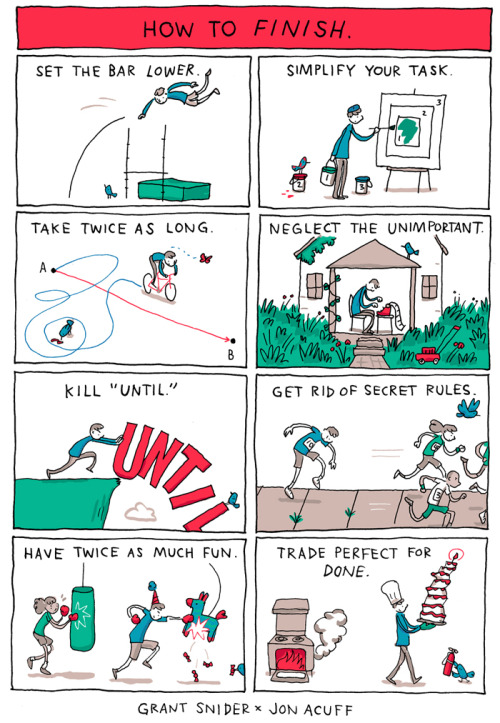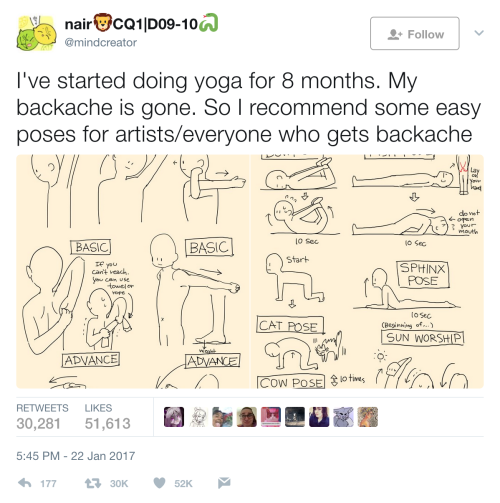From Beginner To Intermediate: An Intense Plan For Advancing In Language
From Beginner to Intermediate: an intense plan for advancing in language
Introduction
I studied Spanish at school for 3 years and now I'm at a low B1 level. I can actually understand pretty well while listening or reading but I can't communicate fluently.
This plan will include vocabulary build up, some grammar revision, a lot of listening, reading and writing. And could be used for the most languages, not only Spanish.
Plan
Every day:
Conjugate one verb in present, past and future tenses
Make a list about 10 - 30 words long
Create flashcards with them and start learning them (I use Quizlet for flashcards)
Revise yesterday's set of flashcards
2-3 times a week:
Read an article or a few pages from a book
Write a few sentences about anything in your target language
Listen to one episode of podcast (at least one)
Once a week or every two weeks:
Watch a movie in your target language, preferably animated movie as the language used there is easier. You can watch with subtitles
Grammar exercises
Translate some short text
Once a month:
Write something longer, like an essay or report, on chosen topic
Additionally:
Talk to yourself, to your friends, to your pets
Text with someone
Look at the transcription while listening to the podcast for second time
Repeat what you hear (in podcast or movie)
Check words you don't know from the listening and reading
Read out loud
Listen to music in your target language - you can even learn the text and sing along
Watch YouTube in your target language
Change your phone language to the one you're learning
Think in you target language!!!
***This is very intense plan for self-learners, you don't have to do all of these things in the given time. Adjust it to your own pace. I'll try to stick to this, if I have enough time.***
More Posts from Purpletelescope and Others
Learning to like Physics
I actually cannot believe how much I used to hate Physics until last year, but then I actually took the time and effort to understand it and?? it’s so cool and fun and easy?? unreal.
It literally seemed impossible for me and I legit thought I wouldn’t be able to graduate because I was never gonna pass Physics (I’m a Math major so we actually have 4 required Physics courses). I don’t know what the point of this is but, don’t be afraid of Physics guys!! (or any other subject!!) yes it’s frustrating as hell and you feel dumb for not having a clue about what is happening or how to work out the problems but I swear once it clicks for you (and it will) it’s gonna be great.
So if anyone needs a step by step (for college/uni), here’s one:
Google is your best friend, the internet has plenty of videos/papers/worked out problems for you to check out. The most important thing to look for is drawings and videos that help you visualize what’s going on. In most of general physics, the key is to see what forces are acting, and from that follows everything else.
Know your core equations. Honestly it’s always the same ones in the end.
For mechanics: you absolutely gotta know Newton’s Laws, Work and its relation to Kinetic/Potential Energy. Momentum is also important.
For thermodynamics: pV = nRT, Boyle/Gay Lussac etc (note that they’re all connected), Carnot’s Cycle.
For electromagnetism: Maxwell’s equations. This is as far as I’ve gotten in my studies.
Understand where the formulas come from, rather than learning them by heart. For me, this was necessary because my memory is absolutely shit so there was no way I could remember every variation. But most of the formulas actually do make sense, and once you’ve drawn out a diagram of what’s happening, you can work them out yourself.
For the previous point, I suggest you watch and rewatch your professor’s explanation until you get the gist. Don’t get discouraged if it’s not immediately crystal clear, seek out other explanations if you need to. Then try to do it yourself.
ASK. FOR. HELP. I cannot stress this enough, do not feel ashamed about asking questions in class or during office hours. There are no stupid questions, and you’re paying thousands every year for people to teach you. Also physics is hard, so you’re pretty much expected to not understand immediately. Moreover, I can guarantee there’s at least one other person in the room with the same question who’s too afraid to ask. I was that person, and I failed the class because of it. Don’t be me.
Practice until you’re able to do most variations of standard problems. Once you’re able to do a certain problem, try to change it and see what happens. You don’t have to crunch the numbers all over again, go with your intuition first. Then you can calculate everything and see if you were correct.
This is all I’ve got at the moment. It applies to General Physics because I’m still pretty shit at Mathematical Physics (Rational Mechanics?) lmao, which is why I don’t talk about Lagrangians and such here.
If anyone has any other tips (for Mathematical Physics as well!) , please feel free to add them. Note that I’m from Italy, and this is what it was like for me. Other countries might have different ways of testing or focus on some formulas that I haven’t included. Do what works for you, obviously.
Good luck STEM students, I know it’s hard, but hopefully worth it in the long run :)

hw fanfic? 👀👀
okay guys this is very nsfw. apparently this was turned in as a homework assignment; the annotations are from a very confused TA.








Introducing Scientist Maker 1.0, a mini dress-up game promoting visibility of science in visual media! You can customize your scientist’s eyes, facial expressions, hairstyles, and give them science-y accessories!
Here we have a chemist, an astrophysics student, a environmental science student, a math student, a programmer, and a microbiologist!






The website is here: https://picrew.me/image_maker/634561

Any non-commercial uses are welcome! Please credit @alchemysciviz if you are using it!

How to Finish
I drew this poster for Jon Acuff and his FINISH book tour. Big thanks to Jon for this collaboration, his book has some great ideas about how to complete creative and life goals.

✧celestial dark academia calendar - april 2021✧
next month’s free print-out calendar, inspired by historical astronomy! april is based on my prints of tycho brahe. all art is my own! full images here (including march)
the cruel choice between pdf (free) vs physical copy (annotatable)









my masterpost | my studygram | ask me anything
[click images for high quality]
Other advice posts that may be of interest:
How To Stop Procrastinating
How To Study When You Really Don’t Want To
Active Revision Techniques
-
 goddess-of-light liked this · 2 weeks ago
goddess-of-light liked this · 2 weeks ago -
 neutrallatte-ma reblogged this · 1 month ago
neutrallatte-ma reblogged this · 1 month ago -
 juljanda liked this · 1 month ago
juljanda liked this · 1 month ago -
 westernsunshine reblogged this · 2 months ago
westernsunshine reblogged this · 2 months ago -
 pallid-etoiles liked this · 2 months ago
pallid-etoiles liked this · 2 months ago -
 mightbejg liked this · 2 months ago
mightbejg liked this · 2 months ago -
 airedelalmena liked this · 3 months ago
airedelalmena liked this · 3 months ago -
 imperatornumidicus liked this · 3 months ago
imperatornumidicus liked this · 3 months ago -
 byronsmuse reblogged this · 3 months ago
byronsmuse reblogged this · 3 months ago -
 angelshortforangel liked this · 4 months ago
angelshortforangel liked this · 4 months ago -
 organised-kitty reblogged this · 4 months ago
organised-kitty reblogged this · 4 months ago -
 organised-kitty liked this · 4 months ago
organised-kitty liked this · 4 months ago -
 langivi liked this · 4 months ago
langivi liked this · 4 months ago -
 kaityslangblr reblogged this · 4 months ago
kaityslangblr reblogged this · 4 months ago -
 333876 liked this · 5 months ago
333876 liked this · 5 months ago -
 smallchangeshappening reblogged this · 5 months ago
smallchangeshappening reblogged this · 5 months ago -
 burnt-tomato-slush liked this · 6 months ago
burnt-tomato-slush liked this · 6 months ago -
 thewolrdisburningyetwedance liked this · 6 months ago
thewolrdisburningyetwedance liked this · 6 months ago -
 cb-reblogs reblogged this · 6 months ago
cb-reblogs reblogged this · 6 months ago -
 liechen liked this · 6 months ago
liechen liked this · 6 months ago -
 anna806fq liked this · 6 months ago
anna806fq liked this · 6 months ago -
 annita89dbkatrdmh liked this · 6 months ago
annita89dbkatrdmh liked this · 6 months ago -
 mariba2000 liked this · 7 months ago
mariba2000 liked this · 7 months ago -
 n0sbleed reblogged this · 7 months ago
n0sbleed reblogged this · 7 months ago -
 wordwiseway reblogged this · 7 months ago
wordwiseway reblogged this · 7 months ago -
 fairylighttea reblogged this · 8 months ago
fairylighttea reblogged this · 8 months ago -
 radiant-7 reblogged this · 8 months ago
radiant-7 reblogged this · 8 months ago -
 twadi-gurl reblogged this · 8 months ago
twadi-gurl reblogged this · 8 months ago -
 mrs-realistic liked this · 8 months ago
mrs-realistic liked this · 8 months ago -
 disco-ball-enthusiast liked this · 9 months ago
disco-ball-enthusiast liked this · 9 months ago -
 matthclders liked this · 9 months ago
matthclders liked this · 9 months ago -
 epicureanenigma liked this · 9 months ago
epicureanenigma liked this · 9 months ago -
 marsvs-thesun liked this · 10 months ago
marsvs-thesun liked this · 10 months ago -
 nuit-tendre liked this · 10 months ago
nuit-tendre liked this · 10 months ago -
 losh21 reblogged this · 11 months ago
losh21 reblogged this · 11 months ago -
 ahmedcito liked this · 11 months ago
ahmedcito liked this · 11 months ago -
 mmc028 liked this · 11 months ago
mmc028 liked this · 11 months ago -
 soballoonist liked this · 11 months ago
soballoonist liked this · 11 months ago -
 zemljoradnik liked this · 1 year ago
zemljoradnik liked this · 1 year ago -
 thebipolarrogue reblogged this · 1 year ago
thebipolarrogue reblogged this · 1 year ago -
 cherrybannisters liked this · 1 year ago
cherrybannisters liked this · 1 year ago -
 paasaatry reblogged this · 1 year ago
paasaatry reblogged this · 1 year ago -
 thefourthwallhasbroken reblogged this · 1 year ago
thefourthwallhasbroken reblogged this · 1 year ago -
 feelthemadnessinside liked this · 1 year ago
feelthemadnessinside liked this · 1 year ago -
 spider-incarnate reblogged this · 1 year ago
spider-incarnate reblogged this · 1 year ago



